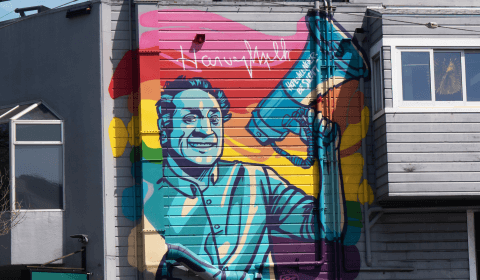A new investigation by Equality Trust raises the alarm on the worsening wealth gap in the UK. It compares the wealth of today’s billionaires to those of the 90s, as well as to the wealth – or lack thereof – of the rest of the British population.
It’s no secret: the rich are getting richer and the poor are getting poorer. And while this may be an oversimplification of the economic state of the world, it’s true that the wealth gap is worsening globally, causing the middle class to become more obscure in places like the US, UK, Europe, and China.
The UK offers an interesting – and rather stark – example. Britain’s number of billionaires has skyrocketed immensely, with just 15 individuals listed as billionaires in 1990 to a whopping 165 listed in 2024.
Wealth distribution across the nation has become noticeably more unequal, too. These findings have been revealed in a new investigation by Equality Trust, which showcases how the world’s billionaires have become ‘ludicrously more wealthy’.
Purposely released at the same time as The Sunday Times Rich List, the analysis reveals that the average wealth held by UK-based billionaires has risen by more than 1000% in the last 35 years. This means that the UK’s top 50 richest families now hold more wealth than the poorest half of the entire population – made up of 34 million people.
Not to mention, 2024’s two richest billionaires boasted more wealth than all billionaires in the 1990’s list combined. Yes, all 15 of them combined.
Priya Sahni-Nicholas, co-executive director of the Equality Trust explained the findings of the organisation’s latest report. ‘Our analysis also shows the vampiric nature of extreme wealth, which is completely incompatible with the health and wellbeing of the nation.’
She points out that ‘property, inheritance, and finance account for over half of total billionaire current wealth,’ stating that these methods of wealth generation come at the ultimate price of our planet’s health, all while destroying a sense of community and humanity within the UK.
‘The obscene growth in wealth of the UK’s richest is due to them profiting from society’s struggles while causing them additional harm and undermining successive governments’ goals of decarbonisation, spreading more wealth and growth out of London, ending the housing crisis, encouraging the growth of new – and frequently greener – industries, and encouraging stronger communities,’ Shani-Nicholas said.
Others have shared her sentiments, stating that landing on the ‘rich list’ should be shameful rather than a source of pride. Hoarding wealth and eradicating business competition by dominating the market directly harms everyone, says member of Patriotic Millionaires UK Julia Davies.
‘You can use wealth to accumulate ever more wealth or you can use it to address many of the multiple issues that society is struggling with,’ continued Davies. ‘It’s not intrinsic in being wealthy to want to continue to attract ever more wealth to yourself at the expense of society … it’s a choice.’





















